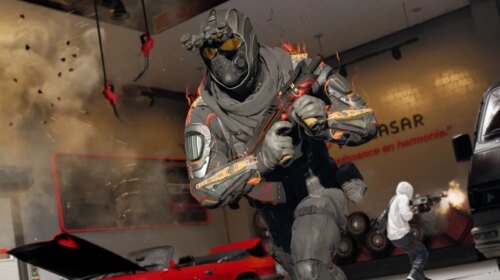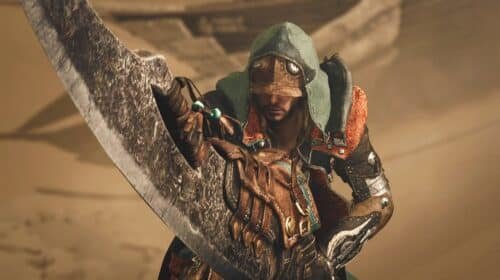The Door Is Open For A New ‘Thief’ Game, And The Time Is Right
The Door Is Open For A New ‘Thief’ Game, And The Time Is Right
Back in May this year, Embracer Group acquired several studios from Square Enix, along with over 50 IPs, several of which would’ve been considered some of the very best out there 20 or so years ago. For $300 million (pocket change in today’s industry), the Swedish holding company (formerly known as THQ Nordic) bought Crystal Dynamics, Eidos-Montreal, and Square Enix Montreal, along with key IPs like Tomb Raider, Deus Ex, and Thief.
Now, looking at that line-up, it would be natural to assume that Embracer is really interested in Tomb Raider and Deus Ex rather than Thief. The former two games have a much stronger track record over the last decade. With three Tomb Raider and two Deus Ex games since 2011, all releasing with very good to excellent reviews, there’s a strong case to be made that both series’ declines can be attributed to their mismanagement by Square Enix and the publisher’s general disinterest in the works of Eidos-Montreal, rather than the pulling power of the IPs themselves.
This has seemingly been confirmed by Eidos-Montreal founder Stephane D’Astous, who in a recent interview had some strong things to say about Square Enix. D’Astous described Square Enix’s management of western studios as “a train wreck in slow motion,” and also that he was “losing hope that Square Enix would bring great things to Eidos.” The success of the Hitman series since it parted ways with Square Enix also supports the idea that the Japanese publisher – best known for JRPGs like Final Fantasy, Nier, and Chrono Trigger – just didn’t quite know what to do with these distinctly western flavours of game.
While the commercial potential of Deus Ex and most certainly Tomb Raider is surely apparent to Embracer, it may be a little bit less so with Thief. The series hasn’t had an unequivocal hit since Thief 2: The Metal Age in 2000. The 2014 version sold well, but it was regarded by fans and critics alike as the worst game in the series; it was seen as a linear and overly scripted deviation from the masterful level design and freedom of approach that made the earlier games so seminal. Maybe not a terrible game in general, but hardly a Thief game (which made sense given that many of the original Thief developers went off to work at Arkane and make Dishonored in 2012 – much more of a spiritual successor to Thief than the 2014 Thief was).

Thief’s critical panning – and Eidos-Montreal’s apparent difficulty in working with Square Enix – put paid to any hopes of a sequel, but its commercial success suggested that there was still value to the Thief name. While an immediate sequel would probably have tanked given the reception of the 2014 game, it’s been eight years now: fans’ wounds will have healed and developers will have learned their lesson, while a decade’s worth of possible new fans could be introduced to Garrett, the Master Thief.
Let’s remember that the early-mid 2010s were a weird period for gaming, where other great series like Hitman and Splinter Cell also descended into relatively linear, story-driven experiences with Hitman Absolution (2012) and Splinter Cell Blacklist (2013). It’s fair to say that game design has moved on from those strange days, and it’s hard to imagine that today’s Eidos-Montreal would think it’s a good idea to only let you jump when prompted, or only use Garrett’s famous rope arrows to scale buildings at designated ‘grappling points.’

In their acquisition statement back in May, Embracer Group were throwing the Thief name around quite liberally along with Tomb Raider, Deus Ex, and (weirdly) Legacy of Kain, even though they acquired over 50 other IPs. They even honed in on the potential of Thief, saying “Embracer sees an opportunity to invest in these franchises [Deus Ex and Tomb Raider], as well as the additional acquired IPs such as Legacy of Kain, Thief, and other original franchises.”
Now, that could just be corporate big talk, namedropping a couple of old and historically prestigious IPs to show that they’re ‘down with the kids’ (or, well, the slowly greying people who were kids around 20 years ago when these games were in their prime). On the other hand, it’s not unthinkable that they’re being serious, and there would be various ways to test the water on interest in a new Thief game. They could remaster Thief 1 and 2, for instance, or re-release them in VR form (these games, with their relatively slow pace and moody environments, would be great on the Meta Quest 2).





